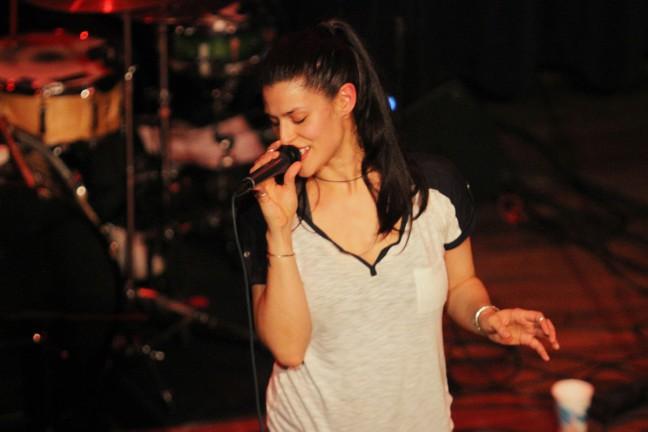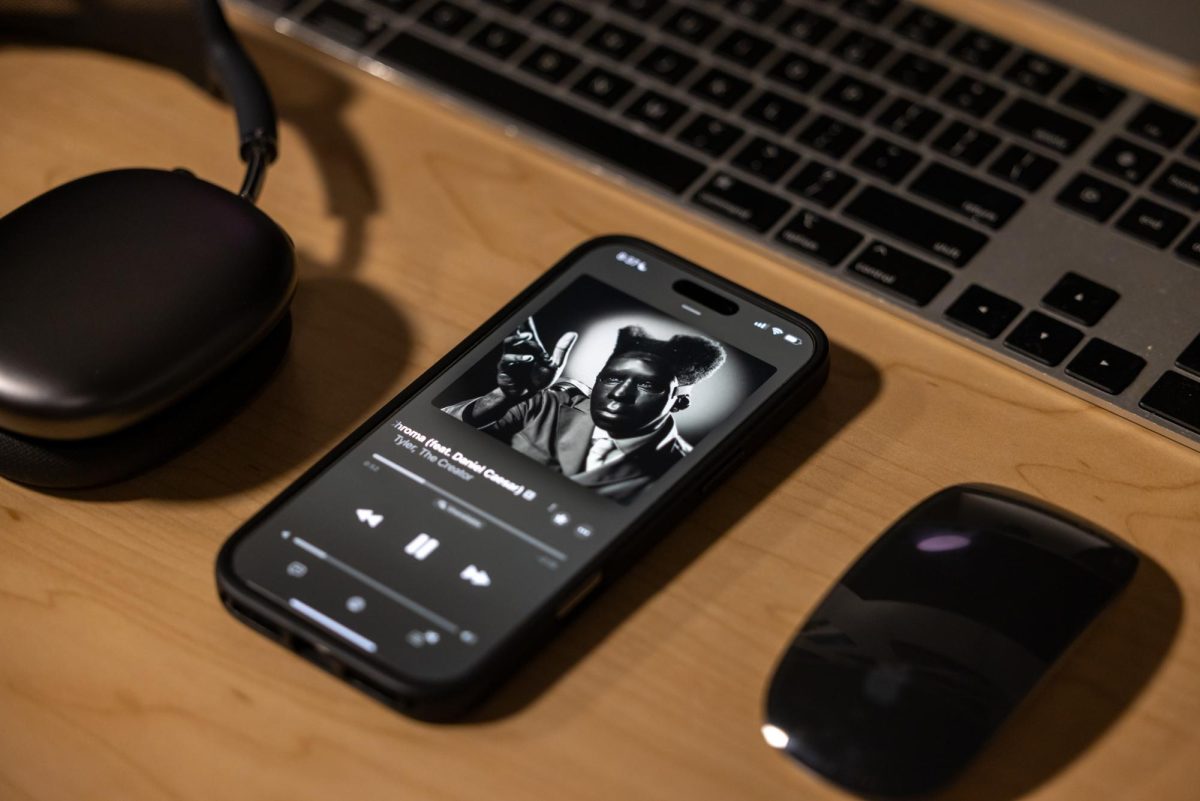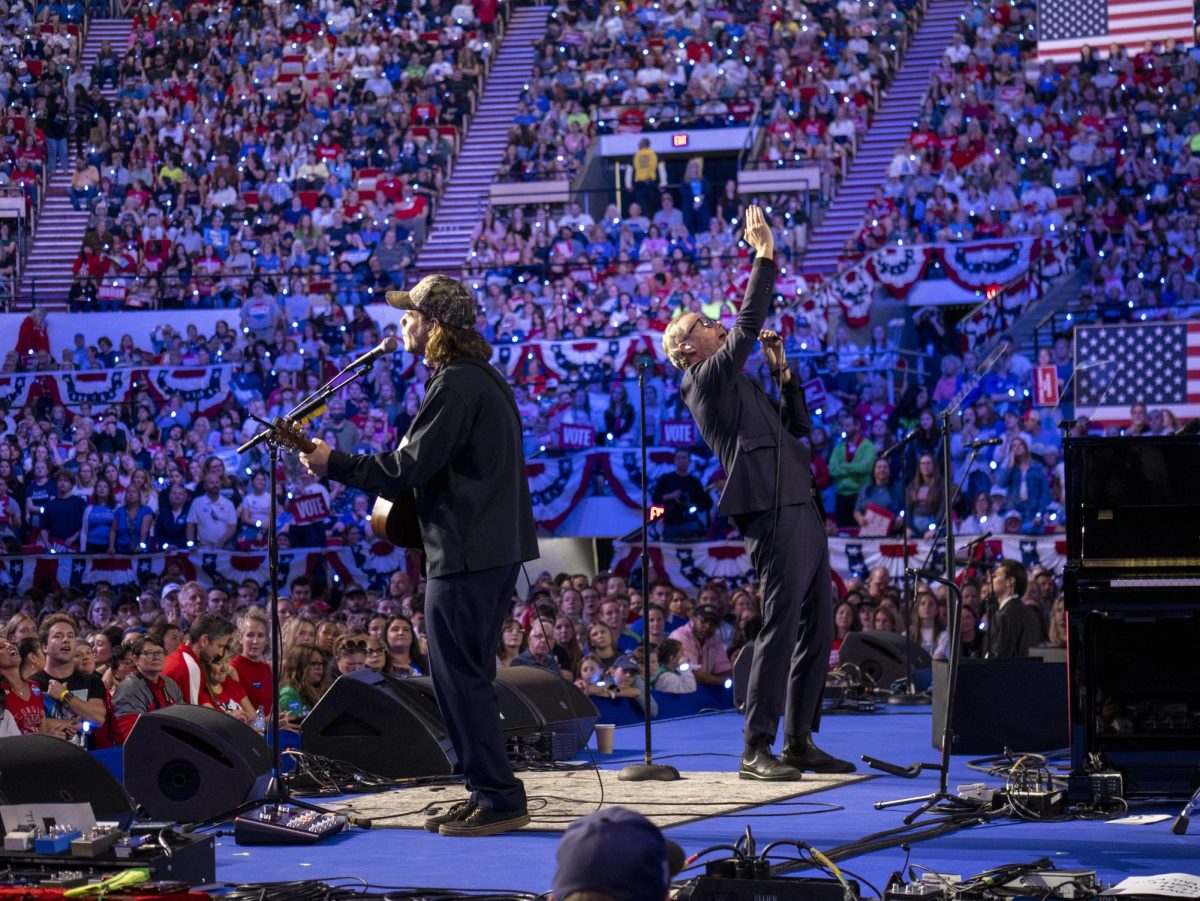Staff writer Louis Johnson spoke with acclaimed Minneapolis rapper Dessa in anticipation of her upcoming show at the Majestic Theatre on Thursday. The full interview is presented below.
The Badger Herald: What is it about Madison that makes doing a show here fun?
Dessa: We’ve been performing in Madison for a long time now, so I think it’s just the familiarity of the venues. This will be our first time playing at the Majestic. We’ve played at the High Noon Saloon before, so for us I think it’ll just be the big lights that’ll make it fun.
BH: What can hardcore fans as well as more casual fans expect from your performance?
D: Well I’ll be arriving with a full four-piece band, and I’ll be bringing Aby Wolf, who is another local artist. She’s got an incredible voice. We have a really large range and we do a lot of harmonies together.
BH: What does your music offer the world and fans alike?
D: I feel like if I write the best music I can and I tell true stories and I work hard at my craft, that people will recognize that. Sometimes I want people to be really moved by the authenticity, but then there’s other times when I say, “You know what? That’s bullshit.” I just trust my intuitions and hope people realize that I mean what I say.
BH: What stuff did you grow up on and what do you find yourself listening to today?
D: My mom and dad played a lot of Michael Jackson, Whitney Houston and Rod Stewart. My father was a classical guitarist, so a lot of stuff under that genre. Now I’m listening to a lot of Doomtree beats and records, since I work with Doomtree.
BH: What was your favorite college class and why?
D: Introduction to Creative Nonfiction, because I had a crush on the subject matter and the instructor.
BH: Favorite thrift store, favorite restaurant and favorite record store?
D: My favorite thrift store is Steeple People’s [South Minneapolis], my favorite restaurant is Fuji Ya [also South Minneapolis] and I don’t really have a favorite record store. I’d probably say the Electric Fetus.
BH: You were the keynote speaker at my sister’s commencement ceremony at the University of Minnesota and you gave a very powerful speech about the importance of failure in life so I guess I wanted to relieve that speech.
You told a story about a friend of yours named Tim Shay who poured his heart out during a spoken word performance to an almost empty audience in a Panera Bread — what is it about moments like that which make life so special?
D: When you say moments like that, what do you mean by it?
BH: I mean what is it about moments where the emotion, the power and the raw talent of someone overcomes a winless situation? There was no win in performing your heart out to an uninterested audience, because nothing was ever going to come of it, but Tim still gave it his all. What is it giving it your all in a hopeless situation that makes life so special?
D: Well I think you gave a really beautiful answer to it, where it was just raw human emotion and passion that overcame the circumstance. I think probably watching someone be fearless when you are afraid is powerful for me.
BH: Why should young people do less of their failing in private and more of it in their public lives?
D: I don’t know if it’s as much a young person thing. I mean, it might even be older people. Unless they push themselves hard enough to genuinely fail, then they might not push themselves hard enough to achieve some really glorious successes and satisfactions. I don’t find a lot of value in failing in it of itself, but to lead a full life — it seems as if one would have to push to determine his or her limits, and the way that we figure out limits is by experiencing failure. So failure really ends up being an unfortunate byproduct of really pushing oneself.
BH: Another point that you made that seemed so simple and obvious was a lesson that your dad taught you about “keeping your overhead low.” What did he mean by that and why is it important?
D: For people who are chasing big dreams, usually those dreams take some time and some practice to achieve. The less of your time you have to spend bread-winning, the more of it you have to master your craft. So if you can manage to pay your rent by working 30 hours a week, you have that many more hours a week to practice guitar or sculpture or dance or theater. So keeping your lifestyle in check allows you to spend your time more freely.
BH: If you could go back and be a college student again, what is the one thing you would do with that opportunity?
D: I would finish my thesis on time; I dragged my feet on that. I think I would’ve paid more attention in astronomy. I felt like such a jerk in that class. I was just skating by, and I feel embarrassed that I was more worried about the grades than I was about learning the content of the course.
BH: What is your favorite 2Pac song?
D: I’m not a huge fan of 2Pac. I guess “Changes?”
BH: Alright then let’s remix the question, if you had to choose between Slug of Atmosphere, Brother Ali or the late Eyedea, who would your favorite of those three be?
D: That’s a political question. I might get a phone call for answering that one. That’s tough. But Toki Wright will be joining our bills on a couple of dates. But I like the rap that some of my crewmates put out, and I like listening to the new stuff that Toki’s making and that Mike [Mictlan] is writing and that P.O.S. is writing.
BH: On your new album Parts of Speech, I read that you were trying to make a complete album that didn’t limit itself to the rap genre. What was your goal in this?
D: I wanted to stay more focused on creating a voice or a tone and a feeling or a personality, and I wanted to be more mindful of not limiting it to one particular genre.
Buy tickets for Dessa’s Wednesday show at the Majestic here.














